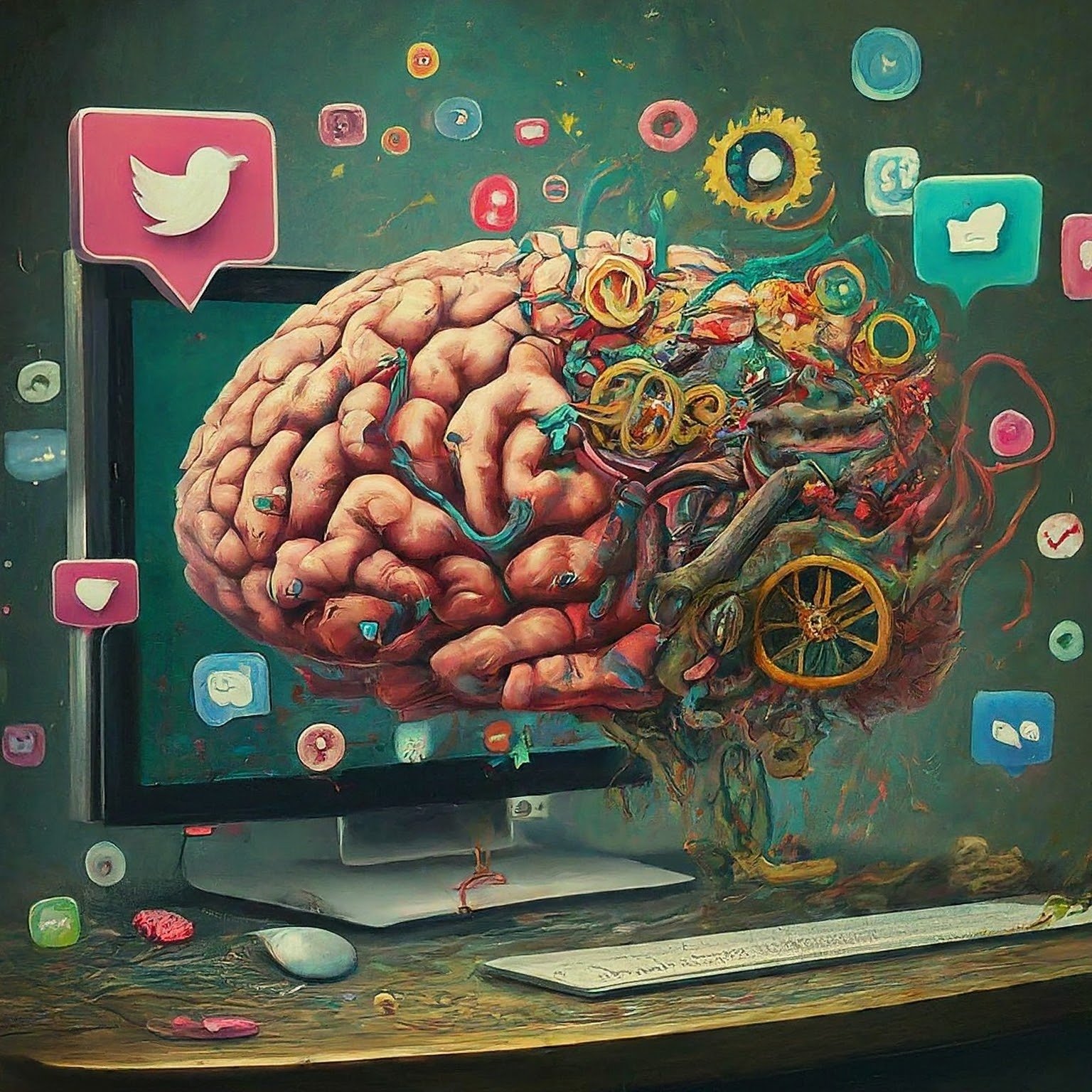We’ve all seen it – AI programs churning out realistic art, writing basic articles, or holding simple conversations. But here’s the deal, Jack: AI lacks true thought. Yes, it processes information, identifies patterns, and generates outputs based on those patterns and other rules at play. But it does so without any internal reflection, debate, or analysis.
What if I told you there’s a growing trend in humans that mirrors this unthinking behavior? Let’s explore why it feels like we’re collectively dumbing down, and how this trend might be a troubling signpost for our future.
The Erosion of Critical Thinking
With a growing aversion to critical thought, complex ideas are often met with a dismissive shrug or a quick Google search that surfaces the first relevant article, regardless of its accuracy or bias. Gone are the days of meticulously sifting through result after result as you trudge your way to the second page of Google results (yes, there used to be pages). Search engines, particularly Google with its “Knowledge Panel” and “Featured Snippets,” now prioritize surfacing a single “best” answer at the top of the results page. This “toploading” approach, while convenient, can be problematic. Nuance is sacrificed for the binary world of “like” and “dislike.” Users may be lulled into a false sense of confidence, accepting the presented information without questioning its source or considering alternative perspectives. “Fake News” much?
Furthermore, search algorithms can be susceptible to bias, potentially skewing the results towards specific viewpoints. Certainly, your past search history and your interaction with those results will have an impact on the results that the search engine will deliver to you in the future. This creates a situation where users get spoon-fed information that aligns with their existing beliefs, further discouraging them from engaging in the critical analysis required to truly understand complex issues. The ability to think critically erodes when the very tools designed to aid us prioritize convenience over exploration and discernment.
“Argument by Proxy”
This decline in independent thought fuels the rise of “argument by proxy” online. Disagreements devolve into a frantic linking game, where participants fling pre-written opinions from others like rhetorical grenades, hoping to win with sheer volume of borrowed outrage. There’s no engagement with underlying ideas, no attempt to understand opposing viewpoints. It’s a battle of pre-packaged arguments, a contest of who can find the most inflammatory soundbite.
I Buy, Therefore, I am
This lack of self-reflection extends to identity formation as well. Many people, particularly younger generations, seem to outsource their sense of self to brands and consumer choices. Think of the ubiquitous lines for the latest sneaker releases or the fierce tribal loyalty towards specific tech companies. What does it say about you when brand affiliation becomes the sole pillar of your identity? Swoosh on a T-Shirt? That was just the beginning.
The head-scratching phenomenon of Tesla’s Cybertruck is instructive. Here’s a truck with questionable utility, questionable safety, and a questionable price, and yet it garners a cult-like following. Pre-orders skyrocketed despite negative reviews. Why? Because for the owners, buying a Cybertruck wasn’t about owning a vehicle – it was about aligning themselves with a perceived image of innovation and disruption – it was about showing the world their unique “identity” through ownership of a vehicle. Lame.
This phenomenon isn’t entirely new. Think of the passionate sports fan who uses the pronoun “we” when referring to his favorite sports team. Or the dude who bleeds his favorite college team’s colors (or even gets a tattoo of the mascot), when he never even applied to the school, let alone attended it (really, you like the Georgia Bulldogs that much??!). These are all examples of what social theorists call the “Big Other” – an external entity that provides a sense of belonging and identity.
This trend reflects a larger issue – our tendency to let brands do our thinking for us. We conflate consumption with identity, mirroring the citizens of Idiocracy who prioritized entertainment and instant gratification over critical thinking. We become, essentially, human avatars, defined by the brands we wear, the opinions we retweet, and the teams we cheer for.
Does that sound familiar? It should because it’s artificial intelligence by any stretch of the definition.
Fight the Future
So, what can we do? Reversing this trend requires a conscious effort to re-engage our critical thinking muscles. Approach information with a healthy skepticism, have open and respectful conversations with those who hold different views, and don’t be afraid to question the narratives fed to you by brands and media.
Ultimately, reclaiming our ability to think for ourselves is the only way to avoid becoming mindless consumers in a world increasingly dominated by AI. Robots are much better at it than us, so let’s fight the urge to become artificial.







Leave a Reply